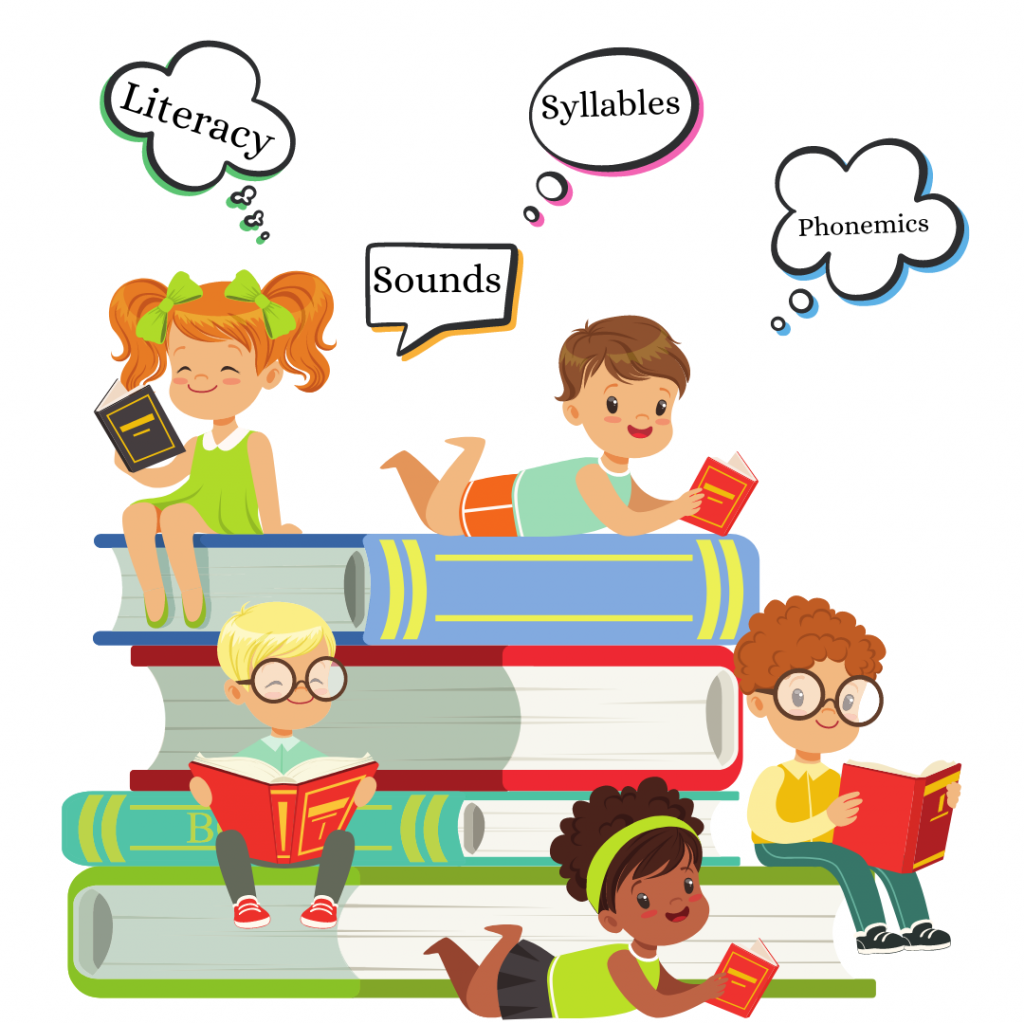Boost Your Child’s Pre-literacy Skills!
Is your child starting Prep in 2025? Or perhaps they have just started their Prep journey this week – how exciting! You may be wondering about what you can do on the home front to support your child to make a smooth transition towards becoming a confident reader and writer.
Phonological & Phonemic Awareness
Did you know that awareness of sounds in words, known as phonological awareness, is a strong predictor of early literacy success? The English writing system is mainly phonemic, with letters or groups of letters linked to individual sounds (phonemes). Many children may not be instinctively aware that spoken words are made of smaller parts, such as sounds and syllables. This is especially true for children with a history of speech sound delays who are at a higher risk for experiencing literacy difficulties. For this reason, your speechie may suggest screening your child’s phonological awareness skills prior to starting Prep or prior to finishing up treatment for speech sound errors.
Helping your child improve their awareness of sounds in words through fun activities at home can really boost their readiness for learning these letter-sound pairings when they get to school, supporting both their reading and spelling development. The Reading Rockets website offers a great summary of this topic and suggestions for fun home activities to improve your child’s phonological and phonemic awareness skills – https://www.readingrockets.org/literacy-home/reading-101-guide-parents/your-kindergartener/phonological-and-phonemic-awareness
Story Book Reading
It sounds simple, but reading story books out loud to your child every day (or as often as possible) can really boost their readiness for reading and writing. When we read story books to our children that include beautiful illustrations and rich vocabulary, we are creating a special moment to:
- Bond with our child
- Expose them to new vocabulary words and explain the meaning of unfamiliar words
- Expose them to new topics and ideas that may not otherwise come up in everyday routines
- Improve their print awareness – cover page, title, author, text vs pictures, words and letters, and how a book ‘works’ ie. turning pages, top & bottom, etc.
- Demonstrate how to read and sound out words
For tips on how to make the most of story book reading with your child, head to the Reading Rockets website – https://www.readingrockets.org/literacy-home/reading-your-child
If you are unsure what types of books might be beneficial for this type of reading with your child, a chat with your local librarian can be helpful. Alternatively, Speech Pathology Australia announces Book of the Year Awards in different categories each year – https://www.speechpathologyaustralia.org.au/Public/Public/About-Us/News-media-campaigns/Articles/Book-of-the-Year-2023-winners-announced.aspx
What does good literacy instruction look like?
It can be hard to know if your child’s school is providing the best quality teaching to meet the needs of all literacy learners. Becoming aware of what makes a good literacy program can help you to be a stronger advocate for your child and their learning needs.
Some positive signs for Prep to Grade 2 students include:
- They are helping your Prep – Grade 2 student link letters or groups of letters to the individual sounds that they show
- They are building on this learning gradually but systematically in a clear order
- Home practice readers are ‘decodable’ (they should ideally only include letter-sounds that your child has already mastered)
- They describe their teaching approach as ‘phonics’ or ‘systematic synthetic phonics’
There is a strong scientific consensus about what constitutes quality literacy instruction, including for students who may experience learning difficulties. To find more about this, and for further tips of what to look out for, head to Five From Five – https://fivefromfive.com.au/parent-resources/does-my-child-need-help/effective-teaching-of-reading/
Where to go for help
If you are concerned about your child’s literacy development, the first step is to discuss your concerns with their teacher. The SPELD Victoria website offers a wealth of information about literacy, learning difficulties, and support services. Dee Wardrop offers assessment and therapy services for literacy difficulties with experienced speech pathologists. Contact our admin team to discuss your concerns and find out more about our services.
Written by: Hannah Kelly, Speech Language Pathologist

